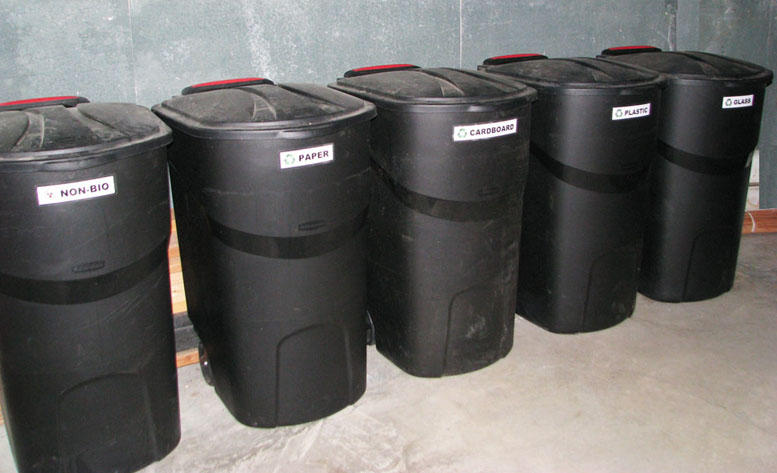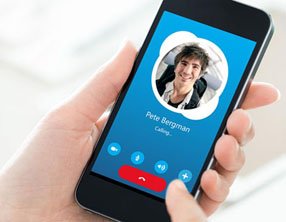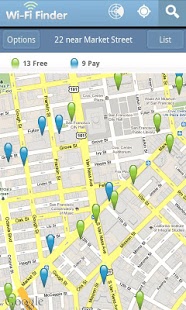Becoming completely self
sufficient has the following benefits:
Reduce Expenses
Initially you have to outlay some money, but afterward you can dramatically
reduce or completely eliminate monthly bills for greater freedom without
financial inflow concerns.
Immunity
Local support infrastructure temporary failures such as electrical power etc.
due to national disasters etc.
Self-Reliance
When you put together everything yourself you learn how how it works
and therefore how to maintain it, saving outside servicing bills most
of the time.
Security
All the money in the world could be worthless if the banking system collapsed and the food shelves were empty. If you have water, food, power and shelter that is independent from the rest of the world that is true security.
Helps Environment
Besides the above benefits, you also contribute to not further destroying
the planet by using non ecologically destructive resources. By becoming more decentralized and independent from non-sustainable corporation controlled sources you are instead supporting sustainable systems with your buying dollar and therefore contribute to a new way of sustainable living. Since your dollars determine which systems get supported.
As Buckminster Fuller said "You never change things by fighting the existing reality. To change something, build a new model that makes the existing model obsolete."
Expense
Reduction Areas
FOOD
This can be sometimes the largest monthly expense. You can reduce this
and improve your health by growing your own food. A large greenhouse will pay for itself. People in the US eat too much food and the wrong
kinds of food. Eat a mostly raw
diet and you will have the vital life force in the food sustain
you, and you feel better and live longer. You can also supplement with wild foods if you live with a lot of vegetation around. Linda Runyon lived on $5 a month eating wild foods on her 5 acres buy mostly seasonings. Aquaponics is a great way to produce your food which uses a tank of fish which provides the plant food which in-turn cleans the water for the fish. The crops grow more than twice as fast and the water is recycled so water usage is minimal with only 10% or so lost through evaporation. All you need to do is feed the fish and plant and harvest your fruits and vegetables.
SHELTER (RENT or MORGAGE)
Being a land owner leaves you with only property taxes for your residential
expense. Find some land with water on it and build an alternative house with good insulation that efficiently
uses less costly resources. Some people are even downsizing to smaller shelters or even modified motorhomes. We started out living in an airstream trailer on the land while constructing on the home site.
INTERNET
If you want to
take advantage of VOIP phone services then you need broadband.
If you live remote and can't get cheap $25 mo DSL then the next best
thing for $35-45 mo is wireless broadband.
If you live on a strategic mountain peak you can be a relay station
like we are and get your internet for free in exchange for the repeater
location (we are talking low radiation here, unlike a cell tower). If your neighbor is ok with sharing his Wifi or his monthly fee with you, you can connect using an access point repeater on a pole outside which will extend your connection range 6 times the distance so that you can share a solid signal connection. Check first to make sure it does not violate any ISP agreements first.
TRANSPORTATION
Still running on the oil company supported internal combustion engine.
Technology is out there to convert
your vehicle from gas to water running on HHO supplementation. A
more efficient approach would be all electric using newly discovered super capacitor
technology with onboard power generation. Alternative power generating technologies exist, just a matter of getting it through the suppressive elements who maintain control and keep us on oil, radiation and coal for power. Still working on this one. If you work from home using the internet you can shop via the web and if you grow your own food you will find you need to commute less for supplies so transportation becomes really less of an issue.
TELEPHONE
With a broadband connection you can go VOIP such as Skype
account and cut your bill to $60 a year with free unlimited long distance
with an incoming number of your choice and all the phone features the local phone company offers at no extra
cost. Use this with your smart phone. The OBi200 1-Port VoIP Phone Adapter with Google Voice for $50 allows you to use your existing home phone can eliminate the yearly expense of a Skype account and number by using this adapter with a free Google number. You can plug your phone or house phone system into this adapter into your router and disconnect your phone company at the phone box and use this to run all your existing phones in the house on Google Voice and cancel that AT&T, Verizon, MCI or whatever monthly fee.
TELEVISION
With a broadband connection a lot of TV shows can be delivered to your
computer and then to a big screen TV to watch Gaia, Amazon Prime, Kodi or youtube which has a lot of great documentary and educational material.
You can do the same without needing a computer with an internet ready TV or set top box such as a Roku device for
Netflix for $8/mo to watch all of the psychotic kill
human programming out of Hollywood. (no thanks) Another option is Free
To Air satellite or FTA receivers pick up a lot of free satellite broadcasts
to complement the free over the air digital transmissions of your local
stations. Here is a list of FTA satellites that are in the English language and are of the none religious category.
COOKING
Using LPG is expensive but a lot less than electric, we own our own 120 gal tank but find that if you tap into your line with a regulator and a refill a smaller 7 gal tank and connect it in it is much less expensive per gallon than having it delivered. Since cooking
usually doesn't require much fuel it shouldn't be a concern, especially
if you are on a raw food diet. Alternatives that are free are solar
ovens and wood fire ovens.
ELECTRICITY
Solar Photovoltaic
panels give several kilowatts to supply all your electrical needs
if you size your system and loads appropriately. If you have a running
stream hydroelectric is very economical or if you have a constant wind
then wind generators are also economical. You can save a lot of expense
on a system if you reduce your load requirements. For example this computer
I'm using is a dual-core atom net top with a solid state drive consuming
only 20 watts of power and the monitor is a 24 inch LED that is only
consuming 17 watts for 37 total. Living off-grid makes you energy conscious
because only you are responsible whether there is power or not. LED lighting is the best choice for power consumption and being non-toxic compared to compact florescences. Occupancy sensors by Lutron are so convenient when walking into a dark space and save by automatically turning off lights in unoccupied areas. Also Lutron dimmers reduce power consumption when full lighting is not required.
WATER
Put in a well, the well we have is 550 feet deep runs on a few solar
panels using a GrunFos solar pump system that pumps it up from the well
and then up the hillside 800 feet to fill a 2000 gal cement holding
tank underneath a pump house which supplies the water pressure. In order to conserve water install a hot water circulation pump for your shower so when you are waiting for the water to get warm the pump recycles the water and draws the hot water for your shower without it going down the drain. If you are doing new construction plumbing you can route all of your non-sewage lines to provide water for your agriculture if you use biodegradeable soaps etc. to save even more water. Rain water can be accumulated and stored using rain gutters. Infrared faucets also help save water and low flush toilets.
SEWER
A Septic or Sand Trap Filter if you live on a hill, takes care of the
sewage. The only expense is pumping it out every 5 or so years. Add enzymes regularly helps consume the waste and extends the time needed to empty the tank. Using
a composter for the garden rather than a Garbage Disposal doesn't fill
up the tank and creates nutrients for your garden. A composting toilet is another alternative. Use a non electrical bio bidet which connects to your hot/cold line so that you require much less expensive toilet paper and also be much cleaner.
TRASH & GARBAGE
We travel to the landfill about every 6 months because a lot of your
waste can be recycled for free. We have labeled a row of waste container
on rollers for: PAPER, CARDBOARD, PLASTIC, GLASS, NON-BIO (meaning
non-organic biological waste) In the kitchen, that which can be
composted goes in the COMPOST which goes out to the garden. So the only
thing that goes to the land fill is BIO-WASTE (all organic biological
waste that can't be composted) and the NON-BIO which is anything
that doesn't fit in the other categories. You'd be surprised how landfill
charges and trips you save doing it this way. The below containers fit
in the back of the pickup and have rollers to make loading easier.

HEATING
If you have a lot of wood around for a fuel source a Wood
Boiler consumes free wood and solar
tubes free sunlight which can feed a hot water storage tank to feed
a radiant floor system for the best type of home heating system. Passive
solar air heating on a south facing wall can also supply heat. A more
economical approach would be a wood stove but indoor air quality can
suffer.
COOLING
If your area humidity in the summer is low you can get an evaporator
cooler which runs on a small amount of solar power to cool your
entire home for free. The unit we use provides 4600 CFM using only 150
watts of power, and when it's hot and the sun is shining that's nothing
for power. Plus you get fresh filtered air pouring in. We also
during summer irrigation divert the cold well water through
the cement slab and it assists in keeping the house cool and of course bypass the floor during the winter.
MOBILE PHONE
For the best of all worlds in communication without the high monthly cellular carrier charges, you can acquire a full featured smart phone like the Samsung Galaxy for example that is unlocked and get a "pay as you go plan" where you only pay for the minutes used at 10 cents a minute and only pay $10 a year to maintain the plan which includes the cost of the minutes and the unused minutes roll over each year. This works out very well since 95% of the time you can find and connect to an open Wifi and use Skype for all your calls and checking messages and when you are not connected to Wifi and have to make an important call, you can switch over to cellular. I recommend an Android app called Free Zone Wifi which shows you where all the open Wifis are all over the world on a map. The additional benefit is you are not exposed to the much higher level radiation from the cellular transmitter in the phone as you can place the phone in "Airplane Mode" with the Wifi only on. Most people travel to regular locations and at these locations you can check for a local open Wifi and be able to check messages and make phone calls for free. Many stores have Wifi as a curiosity to their customers and you can use the video call feature in Skype to show the person on the other end what you are looking at to get their feedback which is handy. All for free.
As a great supplement to the above when you are in motion and not connected to a Wifi, you can also be your own mobile phone service provider which works out well for keeping in touch with your mate on the road. Amateur
radio allows you to have your own private radio stations without
any fees other than initial radio equipment cost. You can talk
as long as you want. With an Autopatch you can connect to your phone system or through a OBi200 adapter when you are on the road. The limitation
is you can not conduct business calls. This works well when you are traveling and in radio coverage range (2m band averages about 100 miles) and is completely free after you acquire your amateur radio license. Another nice thing about this system is that if the grid goes down and if you are off-grid your communication to your family members are unaffected.
Reduced Expense Phone Plan Procedures:
Required Items:
- Smart Phone (Either Android or iPhone) which is compatible with T-Mobile Cellular
- Skype Calling Plan United States Unlimited minutes
- Skype Phone Number (You can check several numbers in your area to get a cool number) As an alternative you can use a Google Voice number.
- Skype app for your phone or Google Voice app.
- Open WiFi Finder app (This is optional)
- Home WiFi Connection with your internet service provider - costs vary (do not use satellite due to latency)
- Cellular Service T-Mobile pay as you go plan $10 year (This is optional if you never need cellular)
Initial Setup of accounts and app installations:
Make sure you can connect on your smart phone to the internet through your home WiFi
Install Skype or Google Voice on your smart phone whether Android or iOS system
Setup on Skype your Unlimited US calling and Skype or Google Voice phone number.
Optionally you can install a WiFi Finder app to map out open Wifi areas when in town (available both Android & iOS)
Order the T-Mobile pay as you go plan to receive a T-Mobile SIM Card to install with your T-Mobile cellular number
Costs:
$40 mo or $480 year for Internet Service Provider - These costs vary and you most likely already have this with a smart phone and a router with WiFi, so you can omit this expense since you are already paying for this. Optionally you can share a WiFi with a nearby friend that allows you on his network.
Yearly Costs
$31 Skype Calling Plan United States Unlimited minutes
$30 Skype Phone Number
$0 Google Voice number with free calling
$36 T-Mobile pay as you go plan $3 month gets 30 minutes with additional at 10 cents a minute.
$97 Yearly Total or about $8 a month total (compare this to what you are paying now yearly for cellular)
Procedures:
Once you have established that you can connect to the internet WiFi of you home with your smart phone, setup a $2.99 month Unlimited US calling Skype account. After you setup an account, Skype offers a 50% discount on a Skype in number Pick your country, State, Prefix then take your time finding your favorite number available. If you communicate to foreign countries you can get an additional number in that particular country if needed. This Skype number is going to be your MAIN number for people to contact you. So choose one you can live with that is easy to remember. Your Skype account has all the features of voicemail, call waiting, call forwarding, call conferencing and video calling. Video is handy when needing to show another Skype user what you are looking at, rather than trying to describe. When you get your T-mobile pay as you go $3 mo plan SIM card in the mail it will have your cellular phone number. This T-mobile cell number for the most part you do not give out.
When at Home:
Have your smart phone on the charger at home with Skype app loaded and in "Airplane Mode" connected to your WiFi. By doing this, it turns off the biologically dangerous radiation from the cellular transmitter in the phone and uses only the low power WiFi signals of the phone for your conversations. This is yet another great benefit of using this plan versus having the cellular on all the time. While at home you can call and talk as long as you want and receive calls to your new Skype number which you give out to everyone on your contact list. If you miss a call, just check your Skype voicemail and call them back. Of course besides your smart phone, you can use your computer with a wireless headset to give you mobility to do Skype calls as well. Its that simple.

When in Town:
This is where that WiFi Finder app comes in handy the first time you go into town to your regular stops that you make, you can locate open (no password required) WiFi spots. There are thousands of these in each city. Once you have mapped out what WiFis are open in the areas of town you travel, you can then connect and check your Skype voicemail for messages or make phone calls and talk as long as you want when needed at these spots. Many places have WiFi as a courtesy to their customers such as Coffee Shops etc.

When Traveling:
When traveling in motion, you don't have the ability to connect to a WiFi. For example, you are traveling to a place and are lost and need to make a phone call for directions, or you have an emergency situation and you have to call out immediately. Here you would take your phone out of "Airplane Mode" in other words turn on your cellular transceiver in your phone and make a cellular call on the T-Mobile network. You can keep it brief to save your minutes, so that when you reach a open WiFi you can talk again at great length if needed.
Besides, talking on a cellular phone while driving a motor vehicle can be very dangerous to yourself and others. It is also against the law in many states and can get you an expensive ticket. So this works out well in this accord as well.
We do not give our cellular number out to anyone, as the cellular part of the phone is off in "Airplane Mode" so it won't receive. If you have a rare situation while traveling and need to respond immediately to an important expected incoming call and can not wait until you can check your voicemail to call them back. Then you can forward your skype number to your cellular number. Turn off "Airplane Mode" so that when that important call calls your Skype number in it will ring your cellular phone and you can answer it. But keep in mind that the cellular call will use your minutes allocated during that call. When done, do not forget afterward to switch back to "Airplane Mode" to reduce that radiation and to turn off your Skype call forwarding feature that you setup specially for that important incoming call.
In real life this plan has worked very well for over a decade so far and has saved us a lot of money, without sacrificing communication features. Compare that with the average home phone line plus cellular contract fees over a year. What we find is that we spend 95% of the time enjoying being at home. The places we travel in town to go shopping, get mail etc. we already have a mental note of where the open WiFis are in case we need to check messages and make calls. It's very rare we need to use the cellular and consequently have stored up a lot of cellular unused minutes just in case we ever need them. But for $3 a month the cellular is an essential backup when not connected to a wifi and you have got to make a phone call. So it's good insurance in case of an emergency, you know you always have an ability to communicate wherever you are. When using the cellular you can save a lot of your minutes by keeping your conversations brief and to the point in 1 or 2 minutes max.
Enjoy the huge savings not going to expensive phone carrier plans
So let's see what the monthly
bill adds up to after you've established a self sufficient structure:
$200 mo Food & Supplies
supplemented by growing your own food.
$100 mo Property Tax ($1200
yr + -)
$35 mo Internet wireless
broadband ($0 since we are a broadband repeater site)
$30 mo Transportation using
HHO or EV for maint & insur and or gasoline until you can ween yourself off of it
$5 mo Telephone using Skype ($60yr for Skype unlimited calls plus incoming number)
$3 mo Cellular pay as you go plan ($30yr at 10cents a minute when needed)
$2 mo Cooking with LPG
$0 mo Electricity from Solar
$0 mo Water from well
$0 mo Sewer with septic
$0 mo Heating with wood &
solar
$0 mo Cooling with Evaporator
cooler running on solar
$0 mo Television
$0 mo Mobile Phone with Ham
Radio/Autopatch & Wifi Phone
$365 approximate
total monthly living expenses (about $12 per day or less than $4500 a year)
So living in the new millennium
you could live with the low overhead of our pioneering ancestors only
with the current technological conveniences we enjoy. So it is possible to live well without the stress of having to hustle for paying all the high monthly bills.
|
 DREAMHILL
DOME PROJECT
DREAMHILL
DOME PROJECT
